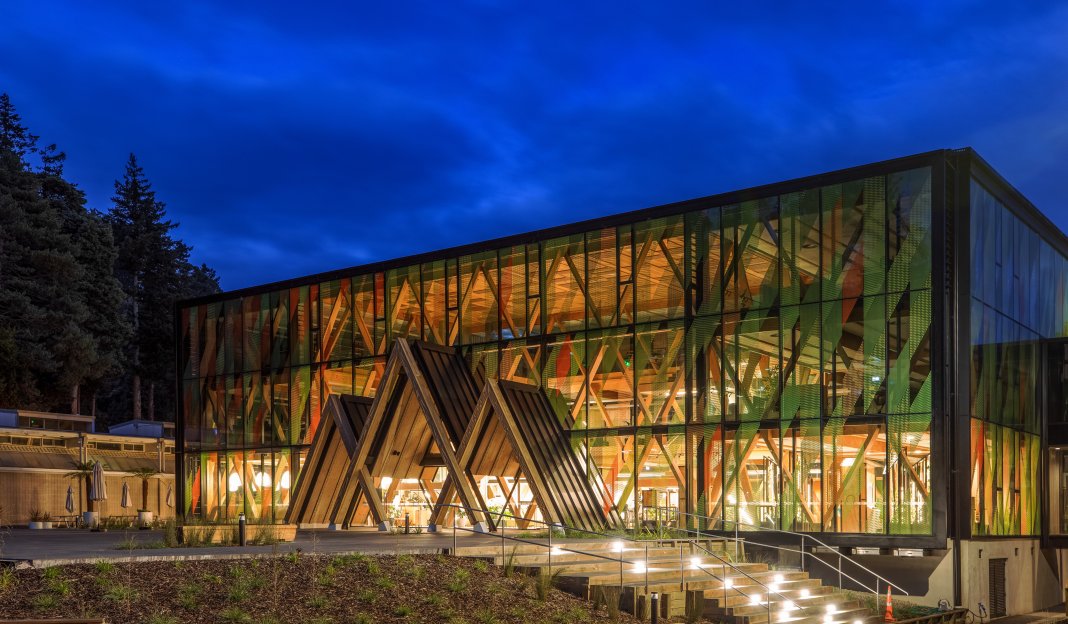Nestled on the edge of Rotorua’s Whakarewarewa Forest is one of Rotorua’s largest employers, going about the business of developing some of New Zealand’s most innovative technologies for the forestry, wood products and biomaterials industries.
Once tucked out of sight, Scion now welcomes the public onto the campus following the opening of its showcase building Te Whare Nui o Tuteata.
As one of seven Crown research institutes, Scion’s job is to drive innovation and growth from the forestry, wood products and biomaterials sectors to build economic value and contribute environmental and social benefits for New Zealand.
We sit on the world stage when it comes to scientific endeavour says Scion CEO Dr Julian Elder. “Through our innovation hub we aim to excite and educate people about the possibilities for the future from forests and wood, and we want to show how Scion is creating solutions to some of the world’s big challenges.”
Planted forests are an important worldwide resource that can provide solutions to many global problems such as rising greenhouse gas emissions, access to clean water, unsustainable land use and dependence on finite fossil fuels. Forestry is recognised globally as a key part of a low-carbon, biobased economy. A bioeconomy uses renewable resources like forests in the manufacture of new products and energy, and when the waste from one process becomes the input into another process, a cycle is created.
Scion’s strategic goal is quite clear – transitioning New Zealand to a circular bioeconomy.
The institute works closely with industry, government and Māori on research programmes that lead to this goal. Among exciting examples that Scion is leading are bark biorefinery technologies that can convert millions of tonnes of bark into high value materials and products; a national roadmap for the future of bioplastics; a biofuels roadmap for New Zealand; and biobased additive manufacturing to create waste-free, environmentally-friendly materials and products such as medical devices.
Such biotechnologies developed at Scion are part of the growing global bioeconomy and are an exciting prospect for the New Zealand forest industry.
“We are championing transformation along the entire forestry value chain,” says Dr Elder. “Forestry offers huge potential for New Zealand, nationally and regionally. In my opinion, the potential is larger than what was offered when refrigerated shipping began nearly 140 years ago. The impact of that was tremendous and led to our trade in frozen meat and dairy products.”
Scion has been an integral part of the Rotorua community for over 100 years, starting out as a forest nursery servicing a government afforestation programme in the late 1800s.
To find more about Scion and the work it does go to www.scionresearch.com or the innovation building – open daily to the public.


















